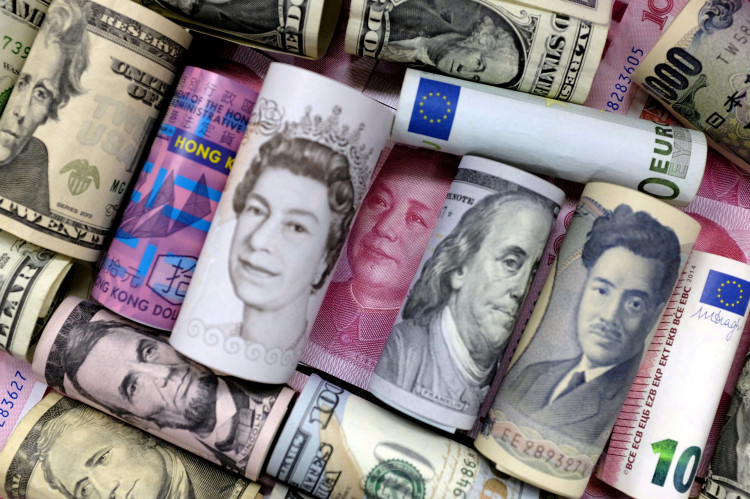China pared its U.S. debt holdings at the fastest rate in two years in March, continuing a pattern of declines and re-igniting fears of it triggering the "nuclear option" as a last resort.
China reduced its massive stockpile of U.S. Treasurys by about $20.5 billion in March, a slight decrease that brought its total holdings down to $1.12 trillion. Over the past 12-month period ending March, China's stockpile of U.S. government notes, bonds and bills fell by $67.2 billion, a 5.6 percent reduction.
Total Treasurys held by China have now fallen by $200 billion since the peak in 2012. It now represents just 7 percent of total U.S. debt outstanding, compared to 12 percent previously, estimates UBS. China is believed to have cut its holdings in an effort to defend its weakening currency, the yuan.
Analysts said the move confirms an ongoing pattern of declines and comes as the U.S. and China escalate a tit-for-tat tariff war where negotiations have gotten nowhere.
China's share of total U.S. debt compared to other countries has fallen to 17.3 percent, the lowest since June 2006. Japan is still the second-largest holder ($1.08 trillion) while the United Kingdom increased its holdings of U.S. Treasurys to $317.1 billion.
Foreign government ownership of U.S. debt now stands at a record $6.47 trillion, up 4% from a year ago. The U.S. government's total debt continues to balloon and now has exceeded $22 trillion. Foreign residents increased their holdings by $23.9 billion.
The probability China will dump much of its U.S. Treasurys to retaliate against president Donald Trump enacting tariffs on all Chinese imports, which stood at $539.5 billion in 2018, is not off the table as can be gleaned from its actions over the past few months.
Experts said this so-called "nuclear option" is being seen by China as a last resort because doing so will hurt China more in the long-run. But selling off most of its massive hoard of $1.12 trillion in Treasurys will immediately weaken the dollar, triggering a surge in interest rates and significantly damage the U.S. economy.
"To me, that is the biggest worry," said Sung Won Sohn, professor of economics at Loyola Marymount University and president of SS Economics. "This is really the biggest weapon they have. They need to do more to counter the United States. So if push comes to shove, that's what they are going to resort to."
Sohn, however, said China shrinking its bond holdings will be the last resort but will be considered if Trump hits all of China's exports to the U.S. with higher tariffs.
"I have become less and less optimistic and more pessimistic because this is a trade war but it's not as much about economics as it is other things," he said. "In the United States, we view China as an economic predator. China views the United States as a model of Western power trying to humiliate China as in the 18th century. There's a long, kind of simmering underneath of nationalistic feelings."
The downside is selling off China's Treasurys will cause Treasury yields to rise and force prices to fall, lowering the value of China's portfolio.
"It's a self-destructive nuclear option," said Robert Tipp, chief investment strategist and head of global bonds for PGIM Fixed Income. "Maybe it helps them as a bargaining chip, but it's endangering the value of something they're deeply involved in."
Other analysts say China exit from the Treasurys market might actually help the U.S.






